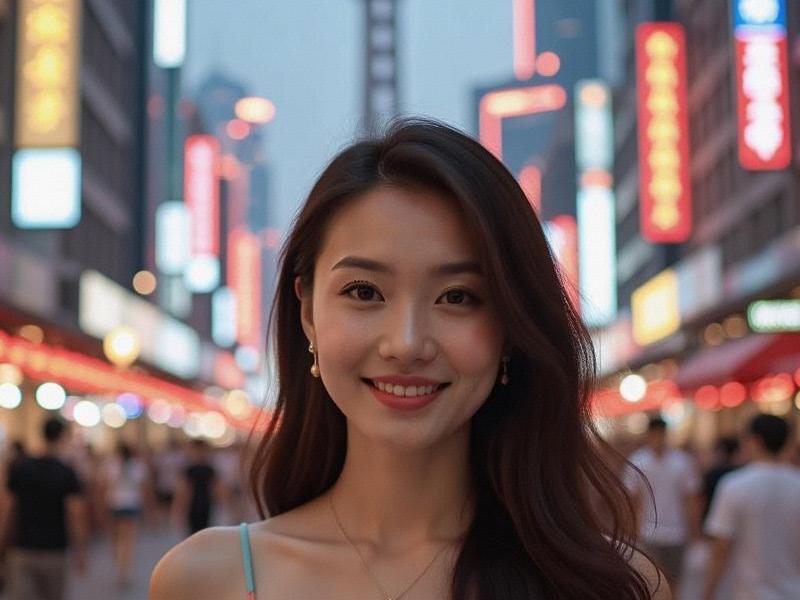This in-depth investigation reveals how Shanghai's elite entertainment clubs have evolved from traditional tea houses to high-tech social hubs, blending Eastern hospitality with global luxury trends while navigating China's complex regulatory environment.

The flicker of neon reflects off the Huangpu River as a discreet elevator in the Bund Financial Center ascends to "Cloud Nine" - Shanghai's most exclusive members-only club where qipao-clad hostesses serve vintage baijur cocktails with blockchain-verified provenance. This scene encapsulates the dramatic transformation of Shanghai's entertainment industry over the past decade.
From Jazz Age to Algorithm Era
Shanghai's club scene has come full circle. The 1920s "Paris of the East" jazz clubs that vanished after 1949 have re-emerged as "neo-speakeasies" camouflaged as tea houses. At "The Cotton Club 2.0" in the Former French Concession, patrons swipe crypto wallets to enter hidden rooms where AI-generated jazz blends with live erhu performances. "We've digitized the romance of old Shanghai," explains owner Marcus Li, showing the club's NFT-based membership system.
This nostalgia meets cutting-edge technology across the city. The newly opened "Longtang VR" in Jing'an District offers immersive experiences recreating 1930s Shanghai alleyway parties through haptic suits and scent-emitting headsets. Meanwhile, traditional nightclub "M1NT" has rebranded as a "social wellness space" offering oxygen bars alongside bottle service to comply with evolving regulations.
上海龙凤论坛419
The Guanxi 2.0 Economy
Shanghai's business entertainment culture has undergone a subtle revolution. Where once KTV rooms buzzed with deal-making over Maotai toasts, now "smart clubs" like "The Bamboo Circle" offer soundproofed pods with real-time translation and blockchain contract-signing capabilities. "We've preserved the intimacy of relationship-building while removing the...excess," says general manager Vivian Wu, demonstrating how facial recognition tracks alcohol consumption to prevent overindulgence.
High-tech discretion drives the new luxury. At members-only "Jade Chamber," staff wear camera-blocking uniforms while AI systems detect and blur smartphone cameras attempting to photograph the interior. "Privacy is the ultimate status symbol now," notes nightlife blogger Zhang Wei.
上海龙凤419会所
Cultural Preservation Through Innovation
Some establishments are reinventing traditional entertainment forms. The acclaimed "Peony Pavilion 2088" combines kunqu opera with holographic stagecraft, while "Mahjong Matrix" offers AI opponents that analyze players' strategies using ancient Chinese military tactics. "We're coding our cultural heritage into new formats," explains tech entrepreneur Chen Li, whose club "The Silk Road" connects Shanghai patrons with virtual reality versions of historic Silk Road trading posts.
This cultural-tech fusion extends to staffing. The city's first "Digital Hostess Training Academy" teaches traditional tea ceremony alongside NFT portfolio management. "A modern Shanghai hostess needs to discuss blockchain as fluently as she pours tea," says dean Madame Lo.
上海贵族宝贝sh1314
Regulation and Reinvention
Shanghai's club owners have become adept at navigating regulatory changes. Many now position themselves as "cultural experience centers" or "business innovation lounges" to qualify for favorable policies. The innovative "Library Bar" in Xuhui District maintains 51% of its floor space as actual reading rooms to meet "cultural enterprise" requirements.
As Shanghai prepares for its 2025 Nighttime Economy Summit, the world watches how this city continues to reinvent entertainment - preserving the mystique of its jazz age past while coding the DNA of its future nightlife. The true Shanghai club experience today isn't about escaping reality, but rather experiencing multiple realities simultaneously - where every cocktail contains layers of history, and every song blends centuries of musical tradition with tomorrow's technology.